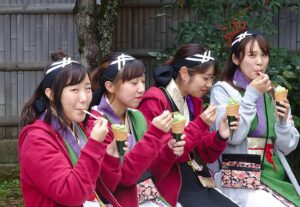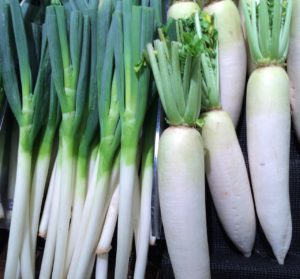背が高い se ga takai, 背が低い se ga hikui: Tall, Short: Basic Descriptions of People in Japanese
In this post we’ll learn some basic descriptions of people in Japanese. First we’ll start with some physical descriptions, so you’ll learn basic adjectives like tall and short. Then we’ll move on to other descriptions of people that aren’t physical, so you’ll learn how to talk about people’s moods and personalities.
Basic Physical Descriptions of People in Japanese
First, let’s start with some basic adjectives that you can use to describe people’s physical characteristics: 背が高い se ga takai tall; 背が低い se ga hikui short; 若い wakai young; 歳をとっている toshi o totteiru old; 太っている futotteiru fat; 痩せている yaseteiru thin; 美しい、きれい utsukushii, kirei beautiful. Let’s see some examples:
- 女の人は{背が高いです・痩せています}。
On’na no hito wa {se ga takai desu/yasete imasu}.
The woman is tall/ thin. - 女の人達は{背が高いです・痩せています}。
On’na no hitotachi wa {se ga takai desu/ yasete imasu}.
The women are tall/ thin.
- 男の人は{背が低いです・太っています}。
Otoko no hito wa {se ga hikui desu/ futotte imasu}.
The man is short/ fat. - 男の人は{背が低いです・太っています}。
Otoko no hitotachi wa {se ga hikui desu/ futotte imasu}.
The men are short/ fat. - {祖父・祖母}は年を取っています。
{Sofu/Sobo} wa toshi o totte imasu.
My grandfather/ grandmother is old. - 男の子は小さいです。
Otoko no ko wa chīsai desu.
The boy is young (“little”). - 小さい息子がいます。
Chīsai musuko ga imasu.
We have a young (“little”) son.
Other Basic Descriptions of People in Japanese
Next, let’s see a few more adjectives that describe people’s moods or emotions or other non-physical characteristics: 嬉しい、幸せ ureshii, shiawase happy; 悲しい kanashii sad; 頭がいい atama ga ii intelligent; ばか baka foolish; 面白い omoshiroi interesting; 人気者 ninkimono popular; スポーツマン supootsuman sporty, athletic; 怠け者 namakemono lazy; 強い tsuyoi strong; 弱いyowai weak; 勇敢 yūkan, brave; 恥ずかしがり屋、シャイ hazukashigariya, shai shy; お喋り oshaberi talkative; 静か shizuka quiet; 結婚している kekkonshiteiru married; 独身dokushin single; 気さく kisaku friendly, nice; 愛層が悪い aisō ga warui unfriendly, mean.
- 女の人は頭がいいです。
On’na no hito wa atama ga ī desu.
The woman is intelligent. - 男の人は強いです。
Otoko no hito wa tsuyoi desu.
The man is strong. - 強い男の人です。
Tsuyoi otoko no hito desu.
He is a strong man. - 強い女の人です。
Tsuyoi on’na no hito desu.
She is a strong woman. - 男の人は強いです。
Otoko no hitotachi wa tsuyoi desu.
The men are strong. - {姉・妹}は{気さく・愛層が悪い}です。
{Ane/Imōto} wa {kisaku/aisō ga warui} desu.
My older/younger sister is friendly/ unfriendly. - {兄・弟}は{気さく・愛層が悪い}です。
{Ani/Otōto} wa {kisaku/aisō ga warui} desu.
My older/younger brother is friendly/ unfriendly. - 女の子はシャイです。
On’na no ko wa shai desu.
The girl is shy. - 娘達はシャイです。
Musumetachi wa shai desu.
Our daughters are shy. - 幸せですか。それとも悲しいですか。
Shiawase desu ka. Soretomo kanashī desu ka.
Are you happy or sad? - 先生は面白い人です。
Sensē wa omoshiroi hito desu.
Our teacher is interesting. - 人気の歌手です。
Ninki no kashu desu.
She’s a popular singer. - 警察官は勇敢です。
Kēsatsukan wa yūkan desu.
The police officer is brave.
Get on the road to speaking Japanese with the Language Garage!
We hope you’ve enjoyed learning some basic descriptions of people in Japanese. If you’d like to learn more, check out our other posts on Japanese language, culture, and more. And if you’re looking for convenient and affordable live Japanese lessons with a real teacher, check out the Language Garage. Our lessons are given online in a virtual classroom, so it doesn’t matter where you live or work – we can come to you. And we have flexible options, with a free trial so that you can decide if there’s a fit. Check us out!
Photo by Joshua Chun on Unsplash






